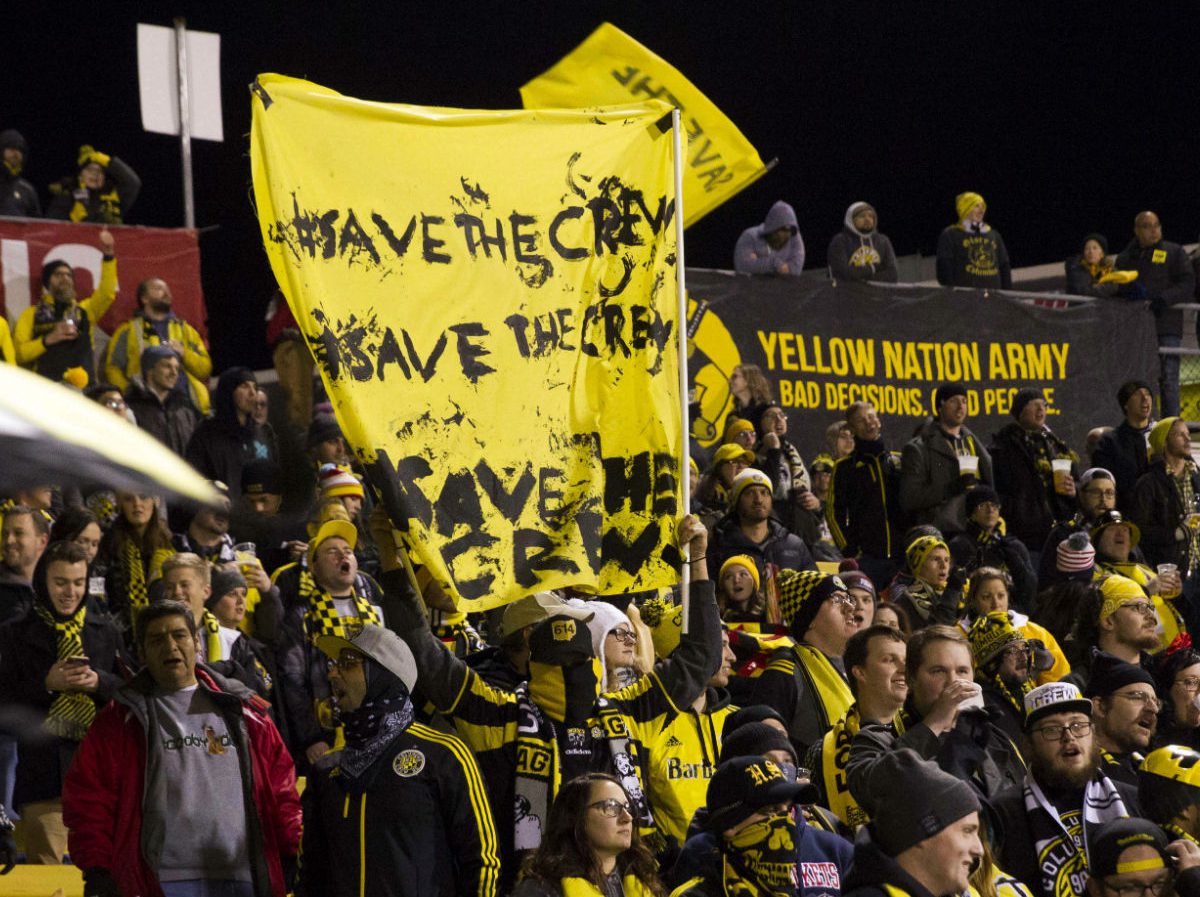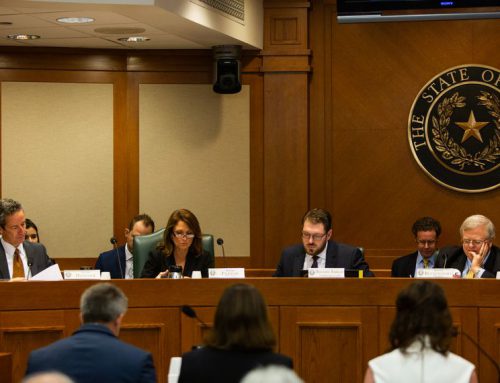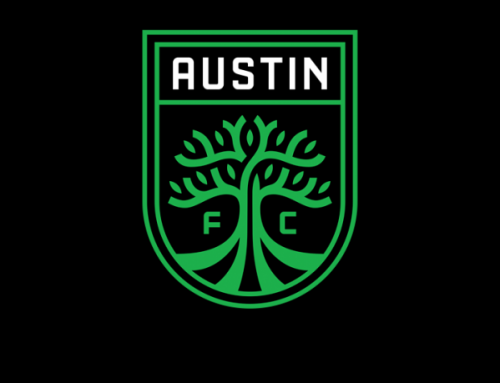This article will look at whether the State of Ohio or the City of Columbus can take legal action to prevent the Crew ‘relocating’ to Austin.
What it wont address is whether there is anything morally or ethically wrong in removing an established soccer club from its home city, in order to start a new team in a new city.
I’ve followed soccer all my life, and I understand the heartbreak and the anger that Columbus Crew fans must feel right now. I have always agreed with Bill Shankly’s philosophy on soccer/football:
“Some people believe football is a matter of life and death. I can assure you it is much, much more important than that.”
It has been suggested that the uproar over the Wimbledon to MK Dons move in 2004 is a good parallel to this current situation. I remember that controversy well, but I was still in Scotland when the Clydebank to Airdrie drama kicked off a few years before that. It was a huge deal and it still is. I have friends who were not even fans of either team that will forever hold a grudge against Airdrie Utd, because it was perceived that they stole a team from another town.
I understand why Columbus wants to #SaveTheCrew. I get it. And I’m not going to argue against their right to protest or their right to do whatever it takes to save their team. I’m only going to look at whether there is any legal basis for them to keep the Crew in Columbus. And there is a law in Ohio that might apply.
The Modell Law
Crew fans appear to be pinning their hopes on blocking a move on Section 9.67 of the Ohio Revised Code, also known as the “Modell Law”. This obscure piece of legislation was enacted in Ohio in 1996, following the relocation of the Cleveland Browns to Baltimore. The statute states:
9.67 Restrictions on owner of professional sports team that uses a tax-supported facility.
No owner of a professional sports team that uses a tax-supported facility for most of its home games and receives financial assistance from the state or a political subdivision thereof shall cease playing most of its home games at the facility and begin playing most of its home games elsewhere unless the owner either:
(A) Enters into an agreement with the political subdivision permitting the team to play most of its home games elsewhere;
(B) Gives the political subdivision in which the facility is located not less than six months’ advance notice of the owner’s intention to cease playing most of its home games at the facility and, during the six months after such notice, gives the political subdivision or any individual or group of individuals who reside in the area the opportunity to purchase the team.
In December of last year, Ohio Representative Mike Duffey, asked Ohio Attorney General Mike DeWine to take legal action to keep the Crew in Columbus. Somewhat surprisingly, Dewine responded quickly to say that he had reviewed the law, and that he was prepared to take “necessary legal action” to prevent the Crew from leaving town.
So we may have a legal battle brewing.
A closer look at ORC §9.67.
Now I’m not a licensed attorney in Ohio, but I have worked for legislatures in both Texas and in Scotland, and I am of the opinion that this is a horribly drafted piece of legislation.
For a start, none of the words used in the law are defined. It’s tucked away in the ‘Miscellaneous’ section of the Ohio Revised Code between sections on Development Loan Liens and Challenges to the Right to Bear Arms, so no help there in figuring out how this law would work
This means that crucial terms ORC §9.67 like “owner” or “financial assistance” or “notice” or “opportunity to purchase” are undefined, and are therefore open to conjecture.
Further, there is no guidance as to how the value of the team might be determined, who gets to decide a purchase price, and whether the Crew owners have to accept it.
The law remains untested by the Ohio Courts, and I was unable to find anything in the bill’s legislative history to aid in its interpretation.
Putting the unworkable nature and the vagueness of the law aside, and putting aside the unusual notion of a government attempting to force the sale of private enterprise, or questions over who has standing to sue, or the inherent constitutional law and commerce clause problems, (addressed very well by Ballon D’Order here), let’s just assume that the law is applicable to the Columbus Crew and that it could be enforced.
If nothing else, any initial arguments will likely be held before an Ohio judge in a Columbus courtroom. It’s not impossible that someone from the Save The Crew Group could argue that they have a right to purchase the team, and maybe they could get a preliminary injunction to delay the move to Austin, pending a lengthy legal battle.
Here’s the problem. Theoretically, someone in Columbus might be able to prevent the Columbus Crew from leaving Columbus, but they wont be able to prevent Austin taking their place in MLS. Why? Because the Columbus Crew don’t have an irrevocable right to play in MLS.
In other words, someone could try and buy whatever the “Columbus Crew” team is, but only Major League Soccer gets to decide whether that team plays in its league or not.
What is a soccer team?
It’s a simple question. What would someone in Columbus be purchasing if they successfully enforced ORC Section 9.67?
- The Mapfre Stadium and Lease? – OK.
- It’s players? – No, see below.
- The team’s intellectual property, the logos, name, nicknames, colors? – Owned by MLS but for the sake of argument OK.
- Goodwill in the community? – OK, although everyone would agree it is diminishing quickly.
- The Crew history, the trophies? – OK.
- The staff, the front office, the back office, the youth development? – Depends on the individual contracts, but OK.
- Contracts with sponsors, media, guaranteed future income? – Again depends, but OK.
- An option to play in Major League Soccer in Austin, aka the “Austin Option”? – OK.
- What else? Oh right, the current license to play in MLS in Columbus, let’s call it the “Columbus License”? – Fine.
I could write another entire article on who actually owns each of these things, because of the single entity structure of MLS. For example, the players are all contracted centrally by MLS and are not owned by the teams. The “owners” of MLS teams are not even owners, they are referred to by MLS as ‘Investor-Operators’. Technically MLS owns the Columbus Crew.
So is a potential purchaser going to sue MLS or Precourt Sports Ventures (PSV) the investor-operators of the Crew, to force a purchase? It doesn’t matter and here’s why.
A Purchase of ‘The Team’ under ORC §9.67 Wouldn’t Necessarily Include a Right to Play in MLS
The “Columbus License” can be taken away from the ‘owners’ of the Columbus Crew, in an instant, by a show of hands of the MLS Board of Governors.
Let me say that another way – a license for the Columbus Crew to play in MLS in 2019 could be revoked before any notice might be required under the Ohio Revised Code, and it could be replaced with a new license to field a 2019 team in Austin. In fact, this may already have happened and we would never know.
So then what would the Save the Crew Group be buying if it tried to enforce ORC §9.67 ? The Mapfre Stadium lease, the Crew name, the goodwill, the trademarks, some staff….and a license to play Major League Soccer in Austin, Texas from 2019 onwards.
MLS could make it even easier. MLS could vote to assign the Austin License to an entirely new group owned by Anthony Precourt, let’s call it “PSV ATX”. All of that can be done now, or whenever Precourt gives notice to MLS that he wants to be in Austin. That would be done at an unannounced private board meeting in New York, and unfortunately for Crew fans, there is nothing that Columbus or the Ohio AG can do to stop that.
In short, even if the Save the Crew Group could force a sale of the Columbus Crew through this law, that team wouldn’t have any right to play in MLS. And the Group wont be able to stop MLS from granting a new license to PSV in Austin.
The Columbus Crew Belongs in Columbus
Regardless, I would encourage Columbus and the Save the Crew Group to try and enforce ORC §9.67. The Columbus Crew should stay in Columbus. So should the logos, the trophies, the colors, and the history.
This is just my opinion but I don’t think Austin wants the Columbus Crew. Austin wants a professional soccer team with no history. Austin wants a new team with new colors, new logos, a new name, and a new start. Arguably this isn’t even a ‘move’ or a ‘relocation’. It’s the end of one MLS team in Columbus, temporarily I would hope, and the start of a new MLS team in Austin. Nothing is actually being moved. Precourt doesn’t even live in Ohio.
The Columbus Crew should be saved and it should stay in Columbus. It just wont be playing in Major League Soccer in 2019.
And that’s basically what happened in the only other example of MLS “relocation”. Four months before the start of the 2006 MLS season, the league revoked the license of the San Jose Earthquakes and granted a new license for the ownership group to play in Houston. However the league retained the Earthquakes name, colors and logo for use by an expansion team in the Bay Area.
A couple of years later, Don Garber announced that the San Jose Earthquakes would resume play as an expansion team starting in the 2008 season. However, the new team assumed all the records, logos, colors and titles of the previous franchise. San Jose fans refer to those missing years as merely a ‘hiatus’.
PSV have not yet commented on whether it even intends to comply with the Ohio law and provide any formal notice to Columbus. I think it should, but obviously not until after MLS has confirmed a new MLS license for Austin, and terminated the MLS license for the Columbus Crew. Then the Crew name, history and titles could be bundled up and sold to the Save the Crew Group. Maybe MLS even adds a long-term “Columbus Option” to the remaining Columbus Crew assets – giving the Group an exclusive right to have a future MLS team in that market. And after a short hiatus, maybe the Crew return to MLS in a couple of years. Think about that for a tasty rivalry game too – Columbus Crew v Austin FC.
Either way, whether you agree with it not, there is no legal basis for the State of Ohio or the City of Columbus to prevent Major League Soccer coming to Austin.
Next up, the elephant in the room in Austin, or rather the Longhorn in the room. How would an Austin MLS team co-exist with the University of Texas?







[…] I wrote back in January about the ‘Modell Law’, and why I don’t think that ultimately it will prevent MLS in Austin, and my opinion on that hasn’t changed. That being said, it’s an interesting move that could have some immediate consequences. […]
Do you think it could be argued that MLS technically is the owner of the Colombus Crew and that the law does not apply to them since MLS does not play most of its games in Ohio?
[…] an opportunity for local investors to purchase the team. I’ve wrote at length about this statute in January and then again the day after the lawsuit was filed in […]
[…] already discussed what I believe a purchaser would be buying. MLS is a single entity and no MLS team has a right to […]
So you truly ought to have identified much better.
[…] is an extremely high burden for MLS/PSV to overcome. I’ve already written about how O.R.C. 9.67 is a poorly-drafted statute, but is it beyond doubt that it is unenforceable? I […]
Woah! I’m really digging the template/theme of thuis
site. It’s simple, yett effective. A lot of times it’s very hard to get that
“perfect balance” between user friendliiness andd visual appeal.
I must say you have done a excellent job with this.In addition, the blog loads extremely quick for me on Firefox.
Outstsnding Blog!
Hi superb blog! Does running a blog liuke this takee a
large amount of work? I have absolutely no understanding of coding but
I was hoping to start my own blog in the nesr future.
Anyhow, should you have any ideas or tipss for
new blog owners please share. I understand this iss off subject however I just needed to ask.
Thank you!
Good day! Do you use Twitter? I’d like to follow you if that woul bbe ok.
I’m absolutely enjoying your blog and look forward to new posts.
It’s amazing to goo to see this wesbsite aand reading
the views of all colleagues about thios article, while I am alseo zealous of
getting know-how.
hi!,I like your wriiting very much! proportion we be in contact more about your article on AOL?
I need a specialist on this area to unravel my problem.
Mayy be that is you! Taking a look forward to look you.
I?m amazed, I must say. Seldom do I encounter a blog that?s both educative and interesting, and without a doubt,
you’ve hit the nail on the head. The problem is an issue that not enough people are speaking intelligently about.
I am very happy I came across this during my hunt for something
regarding this.
Thank yoou for every other fantastic article.
Where else may just anybody get that type of info in such an ideall
means of writing? I’ve a presentation subsequent week, and I’m onn
the look for such information.
Hello everyone, it’s my first pay a visit at this website, and piece of writing is really fruitful designed for me, keep
up posting these articles or reviews.
For mos recenht news you have to visit web and on world-wide-web I found this web page as a finest site for most up-to-date updates.
I’ve been exploring for a little bit for any high-quality articles or blog
posts in this sort of house . Exploring in Yahoo I at lastt stumbld pon this
website. Reading this info So i am glad to express
that I have a very just right uncanny feelling I came upon exactly
what I needed. I so much surely will ake sure to do not forget thus web site and give iit a look regularly.
Practically media training company is great in terms of allows
you achieve target-oriented communication. Flight scgools are normally extremely expensive as well as
that cash you should expect good quality facilities that can put in a great
deal of value for your education. You will have to take both along using the 100 dollar processing fee for a
local police department where they are going to take
your fingerprints and in addition operate a criminal background check giving you to verify the info you
filled out in the application.
As lpng as you’re looking too improve, your man will appreciate the effort.
Yes lubrixant hass beeen shown to bring effective relief towards
the following conditions:. Male condoms: It is comprised oof latex or polyurethane which iss rolled oon the erect penis.
Shortcomings It will not increase thee a higher level
ejaculation yet every time they visit your orgasm strong.
The world’s number 1 selling condom brand’s success is related to its constrant innovation as
it regularly happens with products which capture people’s attention. No appear include the disadvantages of condoms are,
the belief that condoms are extremely useful cannot be debated
in any respect.
It can be contracted by all if perhaps you are people, but is familiar to affect men thazt are
between 20 to 24 years of age and females who will be between 16 to 19 years.
What may be the perfect solution for spicing up my relationship dduring my period.
No matter would be the disadvantages of condoms are,
the truth that condoms are extremely useful cannot be debated in any respect.
Hey there! I’m at work browsing your blog from my new iphone!
Just wanted to say I love reading through your blog and look forward to all
your posts! Keep up the superb work!
Actually no matter if someone doesn’t be aware of after that its up to other users that they will help, so here it
happens.
Thanks for every other excellent article. Where else may anybody get that type of information in such an ideal means of writing?
I’ve a presentation next week, and I am on the search for
such info.
В казино Vulkan 777 обеспечены все условия для комфортной и безопасной азартной игры в Украине.
Авторизованные гости онлайн казино могут пополнять
баланс в удобной валюте.
Обязательно заполняются поля с ФИО, датой рождения, выбирается пол
и страна проживания.
Каждый игрок может рассчитывать на высокий уровень безопасности, благодаря чему можно обезопасить
себя от многочисленных нежелательных рисков.
Copyright © 2023 Игровой клуб Joycasino это одно
из самых надежных и выгодных онлайн-казино рунета.
Интернет-казино выдают бонусы,
которые увеличивают количество сыгранных игр и шансы
участников на выигрыш.
У игроков также есть возможность принять участие в играх с живыми дилерами, которые предлагают захватывающий опыт с реальными дилерами со всего мира.